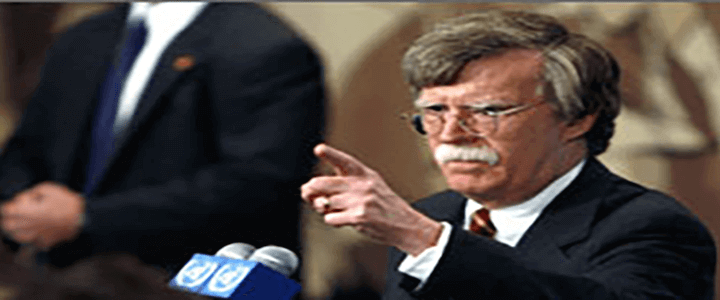When is a foreign policy expert not a foreign policy expert? If you’re CNN’s “media critic,” the answer, apparently, is “as soon as you go on Fox News Channel.”
Ambassador John Bolton is set to become the next National Security Adviser following Lt. Gen. H.R. McMaster’s departure in early April. While a controversial figure for his hawkish views, he has a long and distinguished resume. But if you only got your news from Brian Stelter—and like many people, you didn’t read the entire article—you’d think he was nothing more than a pundit.
Stelter has been banging the drum about President Trump’s apparent fondness for television talking heads, especially when they’re from Fox. The decision to bring on CNBC’s Larry Kudlow as director of the National Economic Council largely focused on the fact that he’s been on television and not on his positions such as staff economist for the Federal Reserve Bank of New York, a mid-senior level position in the Office of Management and Budget during the Reagan administration, and a stint as chief economist for Bear Stearns in the late 1980s.
The same holds true for Bolton.
Bolton’s resume: From Yale to C Street NW
Bolton graduated from Yale University and Yale Law School, were he was contemporaries with Supreme Court Justice Clarence Thomas and the future husband-wife team Bill and Hillary Clinton. His government career has included stints at the United States Agency for International Development, and as assistant attorney general for legislative affairs and later for the Civil Division during the Reagan administration, and as assistant secretary of state for international organization affairs in the George H.W. Bush administration.
When George W. Bush took office in 2001, he appointed Bolton as under secretary of state for arms control and international security, a position that put Bolton squarely in the middle of the Iraqi WMD controversy. Bolton has refused to apologize for his role in leading the U.S. into the Iraq War. In my book, he shouldn’t have to.
Like the rest of the western intelligence establishment, Bolton was fooled by Saddam Hussein’s efforts to convince the rest of the world he had chemical weapons.
Don’t believe me? Believe Saddam.
No one seems to remember the January 2008 episode of CBS’s 60 Minutes where FBI Agent George Piro, Saddam’s interrogator, revealed what he was told during all those sessions with he fallen Iraqi dictator. Regarding Saddam’s refusal to admit he no longer had weapons of mass destruction, Prio told reporter Scott Pelley, “It was very important for him to project that because that was what kept him, in his mind, in power. That capability kept the Iranians away. It kept them from reinvading Iraq.”
Saddam lied to make himself look stronger than he was. He bet that George W. Bush wouldn’t invade, and miscalculated. But every intelligence organization in the western world was convinced Saddam still had chemical weapons, and Saddam encouraged the idea.
That’s not Bolton’s fault, but the damage was done, especially since it would be some time before we confirmed Saddam’s deception. In the meantime, Bush wanted to send Bolton to the United Nations, but his hardline stance was enough to make him “unconfirmable.” Bush used a recess appointment in August 2005 to install Bolton as UN ambassador. He held the position for a year and three months, at which point it was clear that the Senate would never consent to his permanent appointment, and he bowed out.
His lengthy resume makes it clear Bolton is more than a television pundit, the job he took during the Obama years. Hey…a man’s got to pay the bills while the other party is in power.
A national security advisor who’s a hawk
It is true that Bolton favors tough talk. He speaks bluntly and undiplomatically—which is probably part of the reason the Senate would not consent to have him be our chief diplomat at the UN.
He has argued that a preemptive strike on North Korea is a viable option to eliminate their nuclear program, and that the Iran nuclear deal is not worth saving. Both would be troubling if he were to be the man in charge. But as national security adviser, he’ll have the President’s ear, but he won’t go unchallenged.
Even the most strident conservative think tank establishment figures disagree with Bolton’s idea that the Iran deal should be thrown out wholesale. Mark Dubowitz, who heads the Foundation for Defense of Democracies, is among the harshest critics of the Iranian regime and the nuclear deal. Believing that the Obama-negotiated pact merely delays Iran’s development of a nuclear weapon, he nonetheless has advocated a “fix, don’t nix” approach.
McMaster is largely credited with preventing the president from scrapping the deal. Dubowitz and others are as worried as the “resisters” that Bolton will lead the president into a “bomb Iran” strategy.
I, however, have confidence that Secretary of Defense James Mattis has enough force of will, and enough of the president’s respect, to keep Bolton and secretary of state nominee Mike Pompeo on the right side of conflict in both Iran and North Korea.




